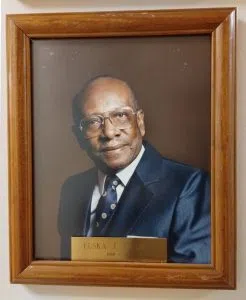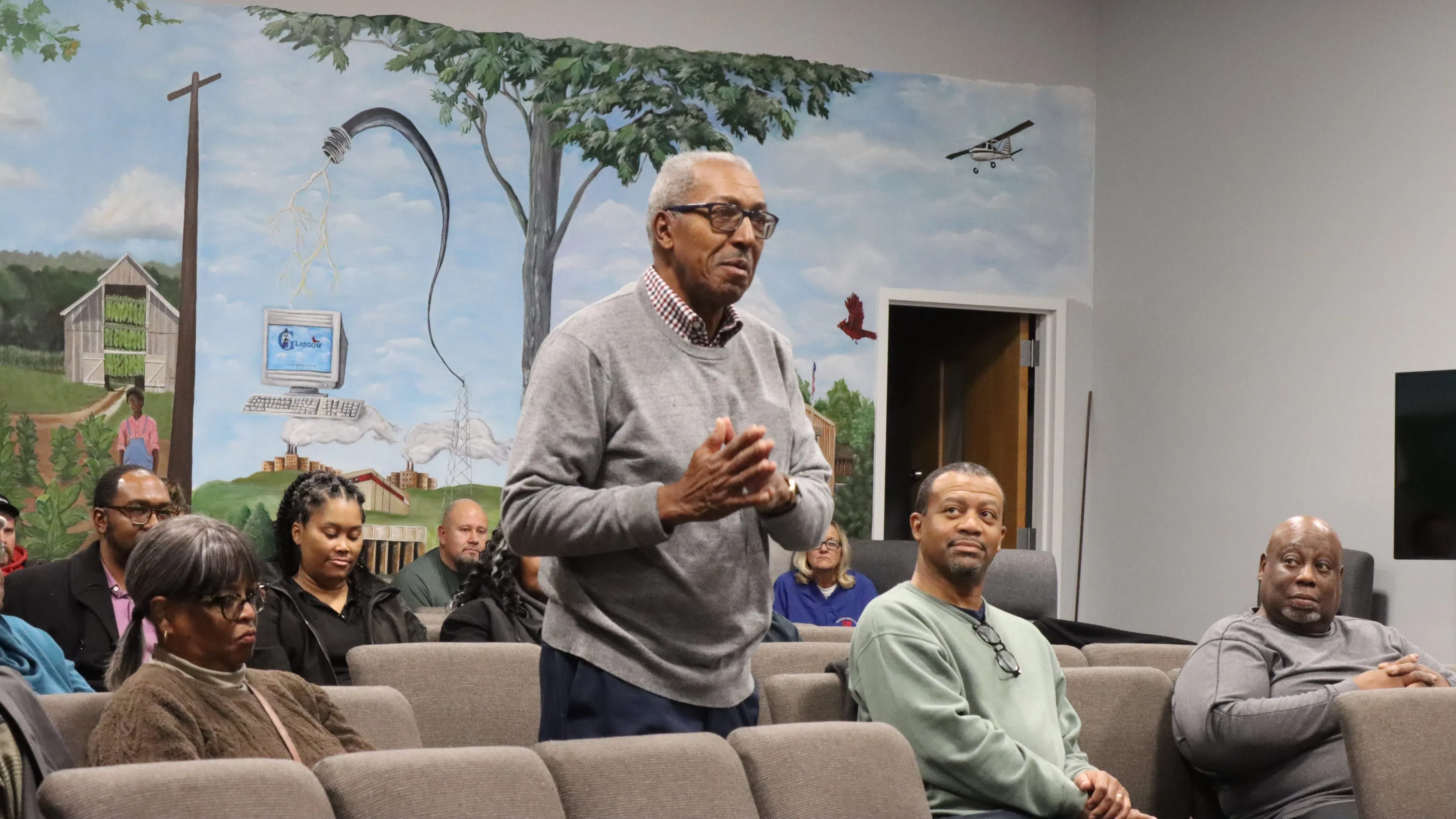By MELINDA J. OVERSTREET
for Glasgow News 1
Glasgow City Hall is getting a new moniker – one that honors a groundbreaking local leader.
Luska Twyman was the first black person elected to the city council that now has three black members. A few years later, in 1968, his fellow council members chose him to take the helm as mayor after Robert A. Lessenberry stepped away from that role two years into a four-year term. The following year, Twyman won the first of his mayoral races, becoming the first black person elected to a full term as mayor in Kentucky and he continued as the city’s top government official until 1985.
The work he did and the respect Twyman earned in his government roles were a significant part of a larger life story that, as a whole, inspired a current councilman to sponsor a resolution to rename the city’s government building.
With all nine members present, the Glasgow Common Council that had its first meeting Monday of a two-year term unanimously approved that resolution making the identification change for the building at 126 E. Public Square to the Luska J. Twyman Municipal Building.

This photo of Luska J. Twyman hangs on the hallway wall just outside Council Chambers — amid photos of other former mayors dating back to 1922 — in the city hall structure that is becoming the Luska J. Twyman Municipal Building. Melinda J. Overstreet / for Glasgow News 1
Twyman was born in 1913 in Hiseville and was graduated from Kentucky State University, a public institution for which he would later serve on the board of regents. He served in the U.S. Army during World War II in the Philippines. For many years, Twyman was the principal of Ralph J. Bunche School in Glasgow and played an integral role in achieving integration for Glasgow Independent Schools.
Twyman was also the first black Kentuckian to serve on the U.S. Commission of Agriculture. He also served on the Kentucky Advisory Committee of the U.S. Commission on Civil Rights. He died in 1988.
In a podcast last year, Glasgow’s current mayor, Henry Royse, cited a Twyman quote as it was written in the Courier-Journal from the September day Twyman was sworn in as mayor: “Helping the city of Glasgow prove to the world that blacks and whites can live together in harmony, that’s what I want more than anything.” Royse went on to say in the podcast: “That one sentence personifies his entire career.”
Councilman Terry Bunnell, who sponsored the resolution, said he was fortunate to have known Twyman for a brief time in his own life, and the interactions he had with him revealed a man of integrity, a steady thinker and someone who cared about his community in multiple ways.
Twyman believed in putting in the best effort, Bunnell said, and renaming the city hall in this manner honors and shows great respect for him and recognizes his accomplishments.
He concluded his comments with this quote from Twyman that he felt was indicative of his legacy: “So I try to do the best for the most people. That’s all I can do.”
After the vote, Bunnell asked whether anyone from the audience had comments, and William Twyman, a cousin of Luska Twyman’s who is also an educator, said this was an honor that he thought would please the former mayor.
“During the time that he was mayor – I don’t believe everybody realizes how tumultuous times were during the 60s – but he kept everything sort of smooth and calm,” William Twyman said. “He always wanted people to work together, and so that was a thing I admired about him. … As the quote said, he wanted to work for all people, not just one group, one sect or one religion. He wanted what was best for all people, and I think wherever he went, in the state and in the nation, really, he carried that message from Glasgow.”
Councilman Freddie Norris, who is also a minister, said his memory of Twyman was his words at the beginnings of meetings in the 1980s.
“Often, he would pray scripture,” he said.
Councilman Joe Trigg said he hadn’t planned to say anything, but he wanted to take the chance to reminisce about the early 1960s and how much has transpired since then. He said his first and second grades in school were at the segregated Ralph Bunche School, where Luska Twyman was principal at the time.
“For this building to be named after him, considering what was going on in ’65, ’66, ’67 and ’68 and for us sitting here, because it was difficult for us to even approach this area of town, let alone the thought that, in my lifetime, there might be a building named after Mr. Twyman. I think the results of the people that are here are the results of actions that we took as students of his, based on one of his philosophies about, you know, ‘There is nothing you can’t do; it’s just a matter of what you want to do.”
As he looked out to the audience, he saw a lot of people he went to school with back then, he said, and he reflected on how changes Twyman helped make with the schools changed things with local sports as well.
He said a lot of the African-American community was lost to what would now be called gentrification, and one of Twyman’s goals was to open things up so those individuals would not be as restricted to living in a particular area, and he took steps toward making that happen.
“For the ones that lived in Glasgow, … we know the significant changes that were introduced that contributed to our well-being, and to this community’s well-being and the state’s well-being,” Trigg said.
Royse thanked them for their comments and that Luska Twyman was his principal when he was in the sixth grade, and, “He was a man who gave you guidance, even if that guidance included using that paddle. … They hadn’t outlawed that back then.”
This was met with chuckles from the audience, and he called for the vote, which was unanimous, again, before realizing they had already voted. He said that just further solidified it.
Bunnell told Glasgow News 1 after the meeting that there was no specific reason for the timing of the resolution, but he’s been giving a lot of thought to the idea of recognizing the sacrifices and contributions of local leaders, and this was a great way to start doing more of that.
Coverage from the rest of the council meeting is at this link.
To Learn More
Listen to Mayor Henry Royse and William Twyman discuss Luska Twyman’s legacy in this February 2024 episode of Henry’s Dashboard Dialogues.

Comments